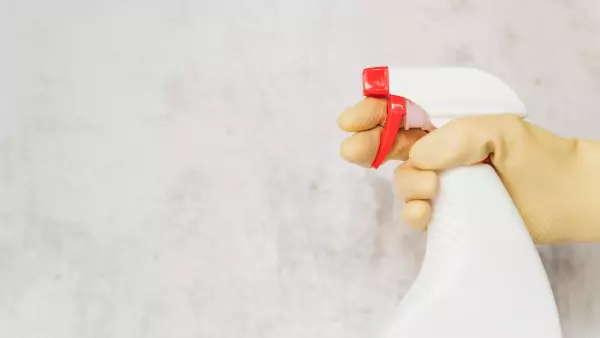Rust is one of the most common and serious household problems. It forms when iron or steel reacts with oxygen and moisture. Over time, rust weakens the metal and spoils its appearance. Virtually all the cleaning products claim to remove rust quickly. Of course, very few products are safe for regular use. Some products contain chemicals that may harm surfaces or, at best, leave stains on them.
In recent years, white vinegar has gained attention as a natural rust remover. It is low in cost, widely available, and easy to use. But does it really work? This blog explores the cleaning power of white vinegar. It also shares safe and simple steps for using it to remove rust. The information below helps readers understand if vinegar is a smart solution.
1. Understanding How White Vinegar Works on Rust
White vinegar is known for its cleaning capabilities, as it contains acetic acid that effectively dissolves rust on metal. It is a mild acid and will not dissolve metal, keeping the surface rust separated as it is dissolved.
The process does not require scrubbing with pressure. It works well when items are soaked for a few hours. Many households prefer vinegar over chemical products. It is a safer choice for regular cleaning needs.
Several affordable end of lease cleaning Sydney services support vinegar based treatments. They use vinegar carefully to treat rusted taps, pipes, and fixtures.
2. Areas Where Vinegar Works Best
White vinegar is beneficial in various areas of the home. It is commonly used in kitchens, bathrooms, and gardens. A trusted end of lease cleaning Sydney team often finds rust on taps, drains, and racks. These areas are often damp and prone to water exposure. White vinegar works well when used early, before the rust spreads. Metal garden tools can also be cleaned using vinegar. They are soaked and scrubbed to restore their shine.
3. Steps to Use White Vinegar for Rust Removal

Using white vinegar at home is a simple process. It is most effective on light to medium rust. Follow These Easy Steps:
- Pour white vinegar into a deep bowl or container.
- Soak the rusted item completely for at least three hours.
- For larger items, soak a microfibre cloth in vinegar and wrap it.
- After soaking, scrub the item with a soft brush.
- Rinse well with water and dry it completely.
This method helps remove loose rust without damaging the surface. Regular checks and care can prevent further rust from forming.
4. When Vinegar May Not Be Enough
While vinegar is effective, it has some limits. It may not work on deep rust or thick metal corrosion. In such cases, a stronger solution or professional help is needed. Scrubbing may cause damage if the rust is too strong. An experienced end of lease cleaning Sydney crew handles such issues carefully. Hiring a cleaner can help inspect the surface and use safer methods. This avoids damage while still restoring the item. So, understanding the cost of professional service can help you make a wise decision at the end of your tenancy.
5. Why Choose White Vinegar Over Harsh Chemicals
Many people are now choosing natural cleaners. White vinegar is one of the most preferred options. Benefits of White Vinegar:
- Safe for most surfaces and materials (except for natural stones)
- Easily available in stores and kitchens
- No strong smell or chemical reaction
- Can be used with other natural items
- Does not harm pets or family members
This makes vinegar a more suitable choice for everyday home use. It is gentle yet powerful enough to treat light rust.
6. Tips to Prevent Rust After Cleaning
Following the removal of rust, it is essential to take steps to prevent its return. The number one cause of rust is moisture, in addition to exposure. Once cleaned, ensure the item is completely dry. Keeping metal surfaces dry helps to minimise rust. It is part of the tenant's responsibility to maintain these items in good condition, and if you care about minimising disputes during property inspections, it may be a good idea to do so.
Due to the numerous trustworthy end of lease cleaning Sydney professionals, they have options to apply a protective layer. The professional options can be oils or sprays that prevent air and moisture from penetrating the metal surface, thereby preventing the formation of rust. Additionally, these processes maintain the items' cleanliness and prevent rust for extended periods.
7. Natural Add-ons That Boost White Vinegar’s Power
White vinegar works better when paired with other safe ingredients. A few combinations can improve the rust removal process.
- Salt: Acts as a gentle scrub when used with vinegar
- Baking Soda: Helps clean stubborn rust from larger areas
- Lemon Juice: Adds citric acid for deeper cleaning
- Aluminium Foil: Can be used for light scrubbing
These items increase cleaning strength without any harmful reaction. They are safe for regular use and leave no marks behind.
How Does White Vinegar Prevent Rust?
Wrapping Up
White vinegar is a natural and effective way to clean rust. White vinegar is best used to remove light rust and is generally safe for most surfaces. Using it with common tools makes it even easier to work with. Applying natural rust cleaning methods, such as vinegar, reduces the need for strong cleaning products. Generally speaking, when vinegar is used, it helps keep your home clean, safe, and completely chemical-free.